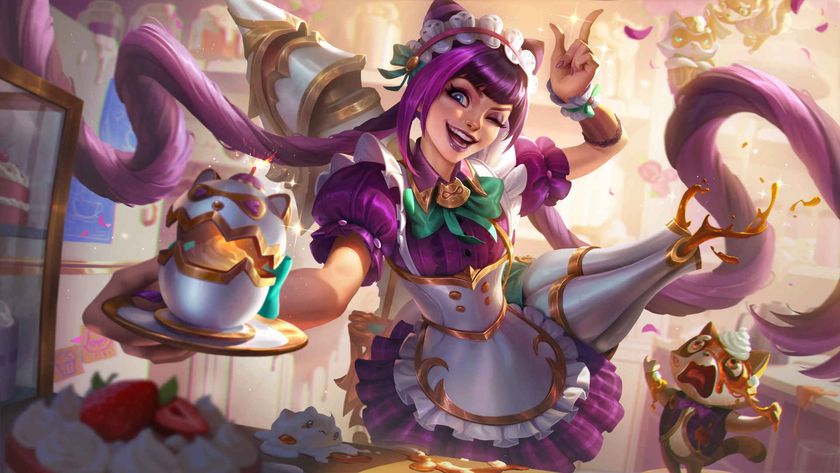League of Legends gets tough on AFK players
"We know that AFKs and leavers are some of the most disruptive behaviors you face"

Riot Games is taking on players that intentionally quit games early or go AFK by updating penalties for League of Legends' most "disruptive behaviors".
In a blog post that outlines changes to AFK and leaver punishments, Riot's competitive team design lead Jordan Checkman and behavioral systems producer TimTamMonster detailed the suite of measures the studio is introducing to shield players from repeat offenders, as well as explain how it hopes to improve the way it "evaluates attempts to reform in [its] games".
"We know that AFKs and leavers are some of the most disruptive behaviors you face, so we're happy to be coming to you today with an update around AFK and Leaver punishments," the post explains.
"Our approach to reducing the frequency of AFKs [and leavers] in games has a few prongs: add additional tiers to our penalty structure so that players who continue to AFK/leave consistently incur these new punishments; add a new penalty type to shield players from repeat offenders, and improve the way we evaluate attempts to reform in our games.
"Up until now, we've penalized AFKing with queue delays," the blog adds. "Queue delays are a speed bump on an offending player’s way to their next few games: Upon clicking the play button, the queue blocks them behind a short timer. The purpose of this is to change behavior. If someone who goes AFK gets to experience what having their time wasted is like, they are less likely to perpetrate it in the future. For most folks Queue Delays work well, but about 9% of our players worldwide engage in consistent AFK behavior and don’t seem to be deterred by a few delays between their games."
The blog includes a helpful pie chart that breaks down how much of its player base abuses AFK behaviors. According to Riot 82 per cent play fair, so sit at "Leaver Tier 0". Interestingly, the next biggest slice of the pie are the worse offenders - 9 per cent are on Leave Tier 3+ – leaving 5.5 per cent on Leave Tier 1 and 3.5 per cent on Leave Tier 2.
Nine per cent may not sound like much, but given that's almost one in 10 players, it's clear why Riot felt the need to intervene, which is why it is introducing queue lockouts – or "mega-delays", as the pair call it – which gives a popup and explains the punishment prevents them from starting any other games.
Sign up to the 12DOVE Newsletter
Weekly digests, tales from the communities you love, and more
"When we issue a Queue Lockout, we're not saying 'hey, doesn't it suck to have your time wasted?'," the blog explains. "We're removing the player from the population for a while so they can't continue to AFK in games. Once a queue lockout does expire, it's followed by the maximum-level queue delay so we can still maintain the benefits of behavior modification and players who take a break don’t get to sit out their entire punishment. Queue Lockouts apply to all MOBA queues."
That said, the team is anxious not to unduly penalize players in parts of the world that have less stable internet connections. Consequently, Riot plans to start testing these changes "in a few regions" – although they're not yet specified – before rolling them out globally and says it is committed to monitoring AFKs, "both in regards to the frequency of this behavior and regional specific connectivity issues".
Find even more to play in our guide to the best MOBA games out there.

Vikki Blake is 12DOVE's Weekend Reporter. Vikki works tirelessly to ensure that you have something to read on the days of the week beginning with 'S', and can also be found contributing to outlets including the BBC, Eurogamer, and GameIndustry.biz. Vikki also runs a weekly games column at NME, and can be frequently found talking about Destiny 2 and Silent Hill on Twitter.

4 years later, the League of Legends MMO remains a major project for Riot Games' co-founder who says it's "exactly the type of company" that should be making MMOs

As League of Legends players blast 800-hour grinds, Riot says this "wasn't meant to get harder" and "we messed up" on the whole First Blood thing too
Most Popular









